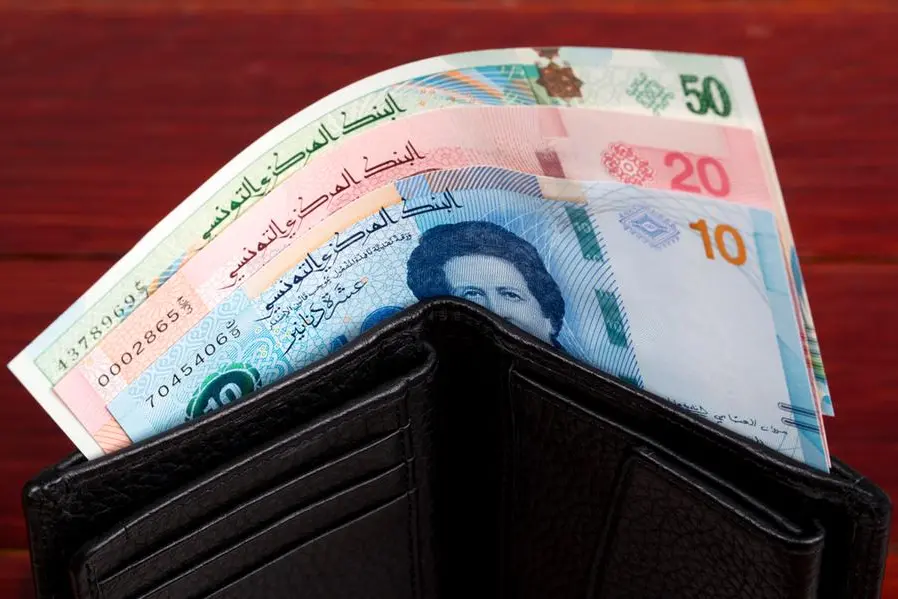PHOTO
Tunisia - At its meeting on Friday, the Executive Board of the Central Bank of Tunisia (BCT) decided to keep the BCT's key interest rate unchanged at 8%.
The Board considered it essential, for the time being, to continue consolidating the disinflationary process and the resilience of the dinar's exchange rate against the main currencies, the BCT said in a statement.
The Board noted that despite the waning impact of external shocks, inflation remains at historically high levels and is still subject to domestic pressures.
Consequently, containing the pressures arising from an excessive increase in demand relative to the country's productive capacity is essential for keeping inflation on a downward trend in the period ahead.
The central bank also pointed out that the outlook for consumer prices suggests that inflation will continue to ease gradually, with an average rate of around 7% in 2024, compared with 9.3% in 2023.
Inflation: Upside risks
However, it considered that the future path of inflation remained surrounded by upside risks, in particular related to the rise in international prices against the background of escalating geopolitical tensions, worsening water scarcity and increased pressure on public finances.
On another front, the Executive Board noted that foreign exchange reserves stood at TND 23,365 million (106 days of imports) as of March 21.
According to the same source, at the end of February 2024, foreign exchange reserves stood at TND 23,039 million (105 days of imports), down from their level at the end of December 2023 (TND 26,408 million or 120 days of imports), mainly due to the repayment of the bond issue contracted on the international financial market for a total of 850 million euros.
With regard to consumer prices, the gradual decline in the inflation rate continued in February 2024.
The inflation rate stood at 7.5% (year-on-year), compared with 7.8% in the previous month and 10.4% in February 2023, while remaining well above its long-term average.
This relative easing was supported by the deceleration in core inflation "excluding fresh food and products at administered prices" (7.8% compared with 8.3% in January 2024) and in fresh food prices (11% compared with 13.8%).
On the other hand, administered price inflation firmed in February 2024 (4.4% compared with 3% in the previous month), the BCT Board noted.
Improvement in growth
Also at the national level, the BCT estimated that the latest available economic indicators show a relative improvement in GDP growth in the first quarter of 2024.
In particular, economic activity benefited from the gradual recovery of the dynamics observed in the agricultural sector after a historic contraction of -11% in 2023, which subtracted more than 1 percentage point from annual economic growth.
In addition, buoyant merchandise exports and tourist arrivals in the first two months of 2024 should support growth.
Imports of capital goods are also higher than last year.
In fact, the current account deficit narrowed to TND 163 million (or -0.1% of GDP) at the end of the first two months of 2024, compared with TND 797 million (or -0.5% of GDP) a year earlier, according to the same source.
This performance is due in particular to the reduction in the trade deficit (FOB-CAF), which stood at TND 1,784 million compared with TND 2,359 million at the end of February 2023.
An energy deficit
However, the BCT Board expressed concern about the widening energy deficit (TND 1,823 million at the end of February 2024 compared with TND 1,693 million a year earlier), which is essentially due to the deterioration in production capacity and the significant delay in implementing energy transition projects.
It warned that this situation could affect the upturn in the external sector, "in a tense geopolitical context, marked by the resurgence of pressure on international energy prices".
On the international front, the BCT noted that inflation had continued to ease gradually and almost generalised.
In this respect, the Central Bank stressed that the process aimed at a rapid return of inflation to the central banks' target levels continues to be hampered not only by the persistence of core inflation, a measure of the fundamental trend in consumer prices, which is judged to be still at high levels, but also by the fading of the favourable base effects linked to previous falls in energy prices.
The resilience of global demand and the gradual strengthening of international commodity prices, in particular, should weigh on the path of inflation over the coming period.
At recent meetings, central banks, particularly in the major economies, have taken the view that the conditions for a pivot (reversal in the monetary policy stance) have not yet been met and remain highly dependent on sustained inflation convergence.
© Tap 2022 Provided by SyndiGate Media Inc. (Syndigate.info).





















